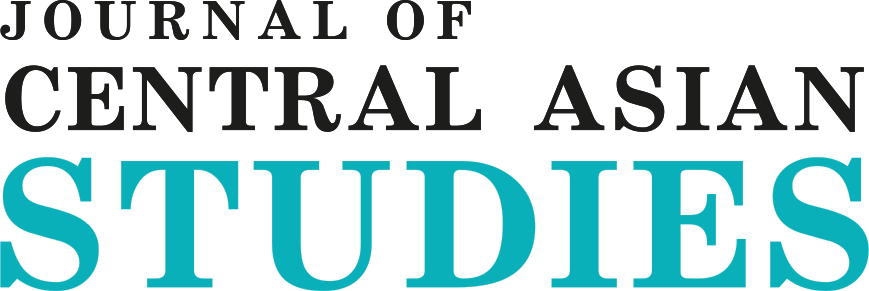Стратегия мягкой силы Индии: культивирование своего культурного влияния в Центральной Азии (на примере Казахстана)
DOI:
https://doi.org/10.52536/2788-5909.2023-1.05Ключевые слова:
мягкая сила, стратегия "мягкой силы" Индии, умная сила, культурная дипломатия, влияние Индийской диаспорыАннотация
Данная статья посвящена стратегии «мягкой силы» Индии (Soft Power Outreach Strategy - SPOS) как комплексному плану, направленному на расширение присутствия страны на мировой арене и укрепление ее позиций как страны, обладающей мощным потенциалом. SPOS фокусируется на укреплении связей между людьми с помощью таких инструментов, как публичная дипломатия, культурные мероприятия, сотрудничество в области образования и научных исследований, стипендии, туризм, проекты развития и так далее. В статье исследуется реализация SPOS в Центральной Азии и делается попытка донести полезность и эффективность дипломатии мягкой силы в контексте Казахстана.
Библиографические ссылки
David M. Malone, 2011. Does the Elephant Dance? Contemporary Indian Foreign Policy. Oxford University Press, pp. 23 – 24.
Shashi Tharoor, 2012. Pax Indica. India and the World of the 21st Century. Penguin Books, pp. 194-218
Kishan S . Rana, 2011. 21st Century Diplomacy. A Practicioner’s Guide. Key Studies in Diplomacy. The Continuum International Publishing Group, pp. 75-110
Oliver Stuenkel, 2016. Post Western World, How Emerging Powers are Remarking Global Order. Polity Press, Cambridge, pp. 97-1095.
Anjali Sahay, 2009. Indian Diaspora in the United States. Brain Drain or Gain? Lexington books, pp. 217-226
Nye, J. S., 1990. Soft Power. Foreign Policy, Issue 80, pp. 153-171.
P. Stobdan, “Asia’s Buddhist Connectivity and India’s Role .” Institute for Defence Studies and Analysis, February 19, 2016
P .Stobdan, “The Traces of Buddhism in the Semirech’e”, Himalayan and Central Asian Studies, Vol.7, No.2, April-June 2003, pp.3-24
Nye, J . S ., 2004. Soft Power: the means to success in world politics. New York: Public Affairs
P . Stobdan, India and Kazakhstan. Civilizational Explorations, New Delhi, Heritage Publishers, 2003 .
Nye, J . S ., 2008. Public Diplomacy and Soft Power. The ANNALS of the American Academy for Political and Social Science, Issue 616, pp. 94-109.
The Routledge Handbook of Soft Power, Edited By Naren Chitty, Li Ji, Gary Rawnsley, Craig Hayden, 2020
Cooper, R ., 2004. Hard Power, Soft Power and the Goals of Diplomacy. In: D . Held & M. Koenig-Archibugi, eds. American Power in the 21st Century. Cambridge: Polity Press, pp. 167-180.
Gallarotti, G ., 2011 . Soft Power: what it is, it’s importance, and the conditions for its effective use. Journal of Political Power, 4(1), pp. 25-47.
Nossel, S., 2004. Smart Power. Foreign Affairs, 83(2), pp. 131-142.
Radha Raina, 2010. Echoes of a Distant Past. India and Kazakhstan. Pp.64-89
Smith-Windsor, B. A., 2000. Hard Power, Soft Power reconsidered. Canadian Military Journal, 1(3), pp. 51-56.
Wagner, C ., 2005. From Hard Power to Soft Power? Heidelberg Papers in South Asian and Comparative Politics, Issue 26 .
Wilson, E . J ., 2008. Hard Power, Soft Power, Smart Power. ANNALS of the American Academy of Political and Social Sciences, Issue 616, pp. 110-124.
‘Historical Sites Recall When Kazakhstan Was Buddhist’ by Michelle Witte in Astana Times, 9 February 2015
PM Modi’s speech at community reception in Copenhagen, Denmark on 3 May 2022, [Electronic Resource]. URL: https://www.narendramodi.in/visit/denmark_speeches. (Accessed: 26 .12 .2022)
Anindita N. Balslev. 2022. On World Religions. Diversity, not Dissension. [Electronic Resource]. pp.5-17 URL: https://www.iccr.gov.in/sites/default/files/2023-01/9789351501749_Web.pdf. (Accessed: 20.12.2022)
Annual Reports of Indian Council for Cultural Relations. [Electronic Source]. URL: https://www.iccr.gov.in/annual-reports. (Accessed: 13.12.2022)
Saken Esirkep. 2020. ‘Zhumsak kush sayasaty: ulttyk kauipsizdik pen mumkindikter’ [Electronic Source]. URL: https://strategy2050.kz/news/zh-msa-k-sh-sayasaty-ltty-auipsizdik-pen-m-mkindikter-/ (Accessed: 02.12.2022)
Загрузки
Опубликован
Выпуск
Раздел
Лицензия
Copyright (c) 2023 Какимжанов А., Веди С., Ахмедьянова Д.

Это произведение доступно по лицензии Creative Commons «Attribution» («Атрибуция») 4.0 Всемирная.










 Open content is licensed under the CC-BY
Open content is licensed under the CC-BY 


